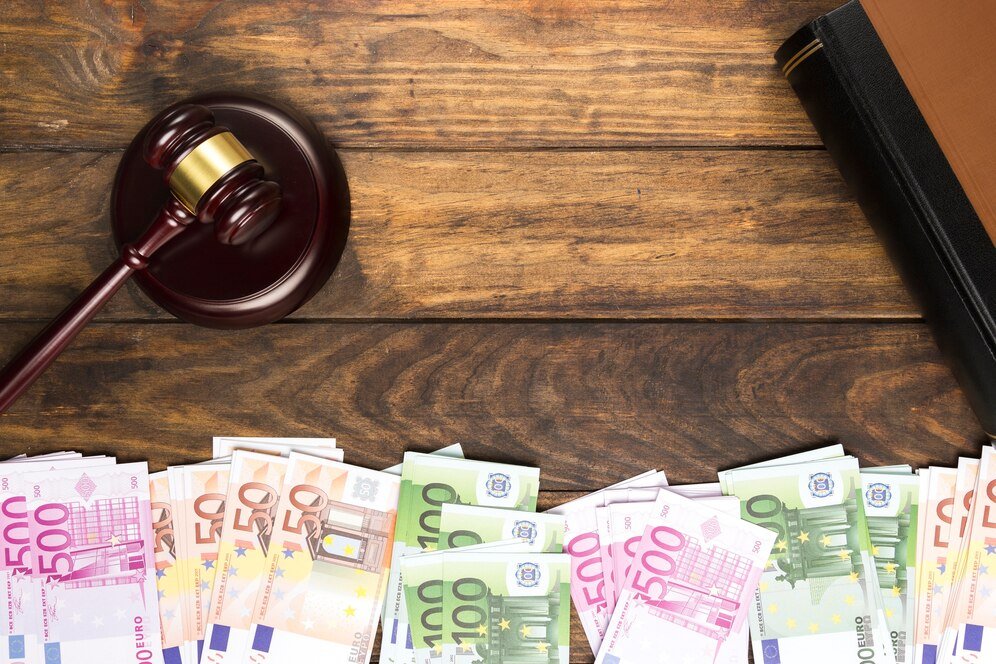Navigating the Legal Maze: Understanding the Penalties for Illegal Cannabis Use
The landscape surrounding cannabis is constantly evolving, with some regions embracing legalization while others maintain strict prohibitions. This creates a complex web of…
The landscape surrounding cannabis is constantly evolving, with some regions embracing legalization while others maintain strict prohibitions. This creates a complex web of regulations, and it’s crucial to understand the potential consequences of illegal cannabis use. Whether you’re a curious individual or someone seeking clarity on the legal implications, this comprehensive guide will delve into the penalties associated with illegal weed, highlighting the importance of staying informed and compliant with the law.
The Shifting Sands of Cannabis Legislation
Globally, attitudes towards cannabis are changing specially on CBD derived stuff like cbd roll on for pain. We’ve witnessed a growing movement towards decriminalization and legalization for both medicinal and recreational purposes in various countries and regions. However, it’s equally important to acknowledge that many jurisdictions still classify cannabis as an illegal substance, and engaging in activities related to it can lead to severe penalties. This blog post aims to shed light on these potential repercussions, emphasizing that laws vary dramatically depending on your location.
What Constitutes “Illegal Cannabis Use”?
Before we delve into the penalties, it’s essential to define what constitutes illegal marijuana use. Generally, it refers to any activity involving cannabis that is not permitted by the laws of a specific jurisdiction. This can include:
- Possession: Having cannabis on your person or in your property without legal authorization.
- Consumption: Using cannabis in public or private spaces where it is prohibited.
- Cultivation: Growing cannabis plants without the necessary licenses or permits.
- Distribution/Sale: Selling, gifting, or supplying cannabis to others without legal authorization.
- Driving Under the Influence: Operating a vehicle while impaired by cannabis.
- Trafficking: Transporting large quantities of cannabis across borders or within a jurisdiction for illegal purposes.
The Spectrum of Penalties for Illegal Cannabis
The penalties for illegal marijuana use are far from uniform and can range from minor fines to lengthy prison sentences. The severity of the punishment often depends on several factors, including:
- Jurisdiction: Laws vary significantly between countries, states, provinces, and even local municipalities. What might be a minor offense in one area could be a serious felony in another.
- Quantity: The amount of cannabis involved is a significant factor. Possessing a small amount for personal use might carry a lesser penalty than possessing a large quantity indicative of intent to distribute.
- Type of Offense: As outlined above, different activities related to illegal marijuana (possession, cultivation, distribution, etc.) often carry different penalties. Distribution and trafficking typically attract the harshest punishments.
- Prior Offenses: Individuals with a history of drug-related offenses often face more severe penalties for subsequent illegal cannabis violations.
- Intent: The perceived intent behind the illegal cannabis activity can also play a role. For instance, possessing a small amount for personal use might be treated differently than possessing a large amount with the clear intention of selling it.
- Specific Circumstances: The context surrounding the offense can also influence the outcome. For example, driving under the influence of illegal marijuana often carries additional penalties related to driving privileges and public safety.
Common Penalties You Might Encounter:
While the specifics vary, here are some common penalties associated with illegal cannabis use:
- Fines: Monetary penalties can range from a few hundred to thousands of dollars, depending on the offense and jurisdiction.
- Probation: A period of supervised release where individuals must adhere to specific conditions, such as regular drug testing and check-ins with a probation officer.
- Community Service: Requiring individuals to perform a certain number of hours of unpaid work for a non-profit or government organization.
- Jail or Prison Sentences: For more serious offenses, such as large-scale distribution or repeated offenses, individuals can face time in jail or prison. The length of the sentence can vary significantly.
- Criminal Record: A conviction for an illegal marijuana offense can result in a criminal record, which can have long-term consequences for employment, housing, travel, and other aspects of life.
- Driver’s License Suspension: Driving under the influence of illegal marijuana can lead to the suspension or revocation of your driver’s license.
- Forfeiture of Assets: In some cases, law enforcement may seize assets believed to be connected to illegal cannabis activities, such as vehicles, cash, or property.
Beyond Legal Penalties: Other Potential Consequences
It’s important to remember that the consequences of illegal cannabis use can extend beyond the formal legal penalties. These can include:
- Social Stigma: In some communities, a criminal record related to illegal cannabis can lead to social stigma and difficulty in forming relationships or finding acceptance.
- Impact on Employment: A criminal record can significantly hinder employment opportunities, particularly in professions requiring background checks.
- Travel Restrictions: Some countries have strict entry requirements for individuals with drug-related convictions, potentially impacting travel plans.
- Educational Consequences: Students caught engaging in illegal cannabis use may face disciplinary actions from their educational institutions, such as suspension or expulsion.
- Impact on Immigration Status: For non-citizens, a conviction for an illegal cannabis offense can have serious consequences for their immigration status, potentially leading to deportation.
Staying Informed and Avoiding the Pitfalls
Given the significant and varied penalties associated with illegal cannabis use, it is absolutely crucial to stay informed about the specific laws in your jurisdiction. Laws are subject to change, so it’s essential to consult reliable sources, such as government websites and legal professionals, for the most up-to-date information.
Conclusion: Know the Law, Protect Yourself
Navigating the legal landscape surrounding cannabis can be challenging. Understanding the potential penalties for illegal cannabis use is paramount to making informed decisions and avoiding serious legal repercussions. Remember that laws vary widely, and ignorance of the law is not an excuse. By staying informed and respecting the regulations in your area, you can protect yourself from the potentially severe consequences of engaging in illegal cannabis activities.
Frequently Asked Questions (FAQ) about Penalties for Illegal Cannabis Use:

1. What is the most common penalty for first-time possession of illegal cannabis?
The most common penalty for first-time possession of illegal cannabis often depends on the quantity and the specific jurisdiction. It can range from a small fine or a warning to mandatory drug education programs or community service. However, in some stricter jurisdictions, even small amounts can lead to jail time, especially if other aggravating factors are present.
2. Can you go to jail for using illegal cannabis?
Yes, it is possible to go to jail for using illegal cannabis, especially for repeat offenses, possession of larger quantities, or involvement in activities like distribution or cultivation. The length of the potential jail sentence varies significantly based on the jurisdiction and the severity of the offense.
3. Does a conviction for illegal cannabis use show up on a background check?
Yes, a conviction for illegal cannabis use will typically appear on a criminal background check. This can have implications for employment, housing, and other areas of life where background checks are required. The visibility of the conviction may depend on the specific laws regarding record sealing or expungement in your jurisdiction.
4. Are the penalties for illegal cannabis different for medical vs. recreational use?
Yes, in jurisdictions where medical cannabis is legal, there are often specific regulations and protections for registered patients using cannabis for medical purposes. However, using cannabis outside the scope of those regulations or in jurisdictions where only medical use is legal can still lead to penalties for illegal cannabis use. The penalties for recreational illegal cannabis use in jurisdictions where it’s not legal for recreational purposes can also differ.
5. If cannabis is legal in one state/country, am I still breaking the law if I possess it in a place where it’s illegal?
Yes, absolutely. Cannabis laws are specific to each jurisdiction. Even if cannabis is legal in one state or country, possessing or using it in a place where it remains illegal can lead to serious penalties. It’s crucial to be aware of and comply with the laws of the specific location you are in.







